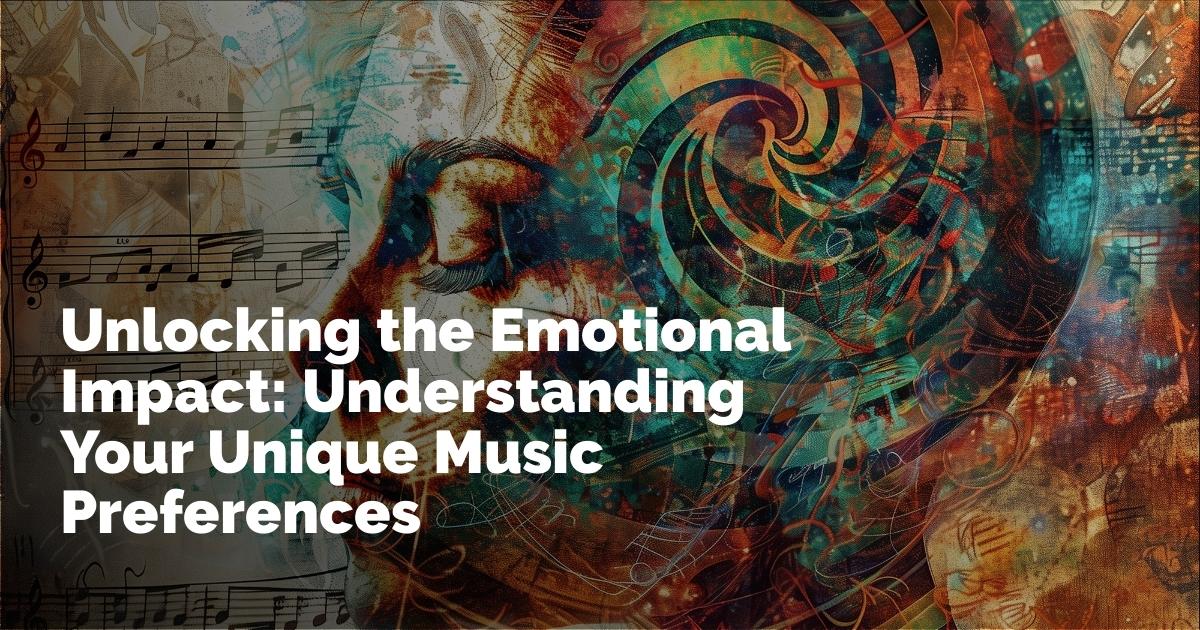Why Do We Have a Certain Taste in Music, Different Than Others?
Understanding why we develop certain musical tastes—and why those tastes differ so widely—is a fascinating subject. When you turn on the radio, some songs immediately captivate you, while others might prompt you to change the station. It's intriguing to consider that the songs you skip might have devoted fans who cherish them. For instance, older music might not resonate with you, but your parents or grandparents may hold it dear, as it evokes memories of their youth—familiar and comforting echoes of the past. As time passes, you might find yourself gravitating back to the music you grew up with, enveloping yourself in a nostalgic embrace.
The Cross-Generational Power of Songs
The enduring appeal of certain songs across generations is a testament to the powerful connection music forms between individuals of various ages. For example, the song "True Colors," originally released by Cyndi Lauper in 1986, exemplifies this timeless quality. Over the years, it has been re-interpreted by various artists, each adding their own touch while maintaining the song's emotional resonance. From being featured in the "Trolls" movie to being part of a pre-show at Disney World's Epcot, "True Colors" continues to find relevance in different eras. But why is it that some songs, like this, appeal to a wide audience across time, while others do not? And why do individuals have such divergent musical tastes, even as certain songs create a bond amongst people from diverse backgrounds and generations?
How Emotions and Personality Shape Preferences
The relationship between music and emotion is profound, as suggested by research indicating that musical preferences may reflect the emotions experienced during listening. This connection is not bound by genre, with some individuals drawn to mellow and soothing melodies, while others seek the emotional surge of classical compositions, or the narrative pull of country and folk tunes. The initial context in which music is encountered often plays a significant role in shaping these preferences, though they can also be intensely personal and specific to the individual.
Moreover, tastes in music evolve with time, influenced by personal experiences. During challenging periods, you might seek out music that embodies the joy you wish to feel or pursue melancholic melodies to navigate through your grief, finding solace in songs that echo your emotions. While the type or genre of music holds importance, it's crucial to recognize that musical tastes extend beyond these parameters. For instance, even among pop and rock enthusiasts, preferences are diverse and varied.
Our personality traits and social media interactions can offer insights into our musical inclinations. Music preferences can often reveal aspects of your personality, with studies suggesting that knowing someone's musical taste might give an indication of who they are as an individual. This understanding allows those close to you to recommend music that aligns with your personality traits.
Research has unearthed fascinating connections between personality and music choice—individuals high in openness may favor sophisticated or intense music, while extroverts might gravitate towards contemporary sounds. Agreeable people often enjoy unpretentious music, whereas conscientious individuals might prefer either spirited or laid-back tunes. Those with anxious tendencies tend to appreciate a wide variety of music styles.
Interestingly, the artist behind the music also influences our preferences, with listeners often preferring artists who share similar characteristics or resonate with them on social media platforms. Understanding these nuances can bridge social and cultural gaps, highlighting shared human experiences and fostering connections.
The Role of Streaming Habits and Environment
Streaming platforms have introduced new dimensions to understanding music preferences. A comprehensive study examining 765 million songs streamed globally revealed fascinating insights into the factors influencing music choice—notably, the time of day, the listener's age, and surrounding musical styles. Generally, people opted for more relaxing tunes in the evening and preferred more energetic music during the daytime. Geographical location also plays a role; in Latin America, streamed music tends to evoke faster emotional responses, while in Asia, the preference leans towards soothing harmonies. Night owls usually choose less intense tracks, and the duration of daylight influences listening habits as well. The environment and mood significantly shape musical interests.
Harmony in the Brain: Unraveling the Neuroscience of Music
Why is musical taste so varied? It boils down to the complexity of human personality, and music becomes a reflection of this intricate tapestry. Our cognitive processes when engaging with music can elicit varied physiological responses, further influenced by our unique perspectives and the alignment of a musician's worldview with our own. Yet, some songs manage to surprise and captivate a broad audience, uniting listeners by transcending individual differences.
Ultimately, musical tastes are a manifestation of individual uniqueness—each person's distinct personality finds expression and is mirrored in their musical choices. These preferences are not just a reflection of who we are, but also a means to understand each other, fostering a shared sense of connection through the universality of music.
출처 : Original Source

